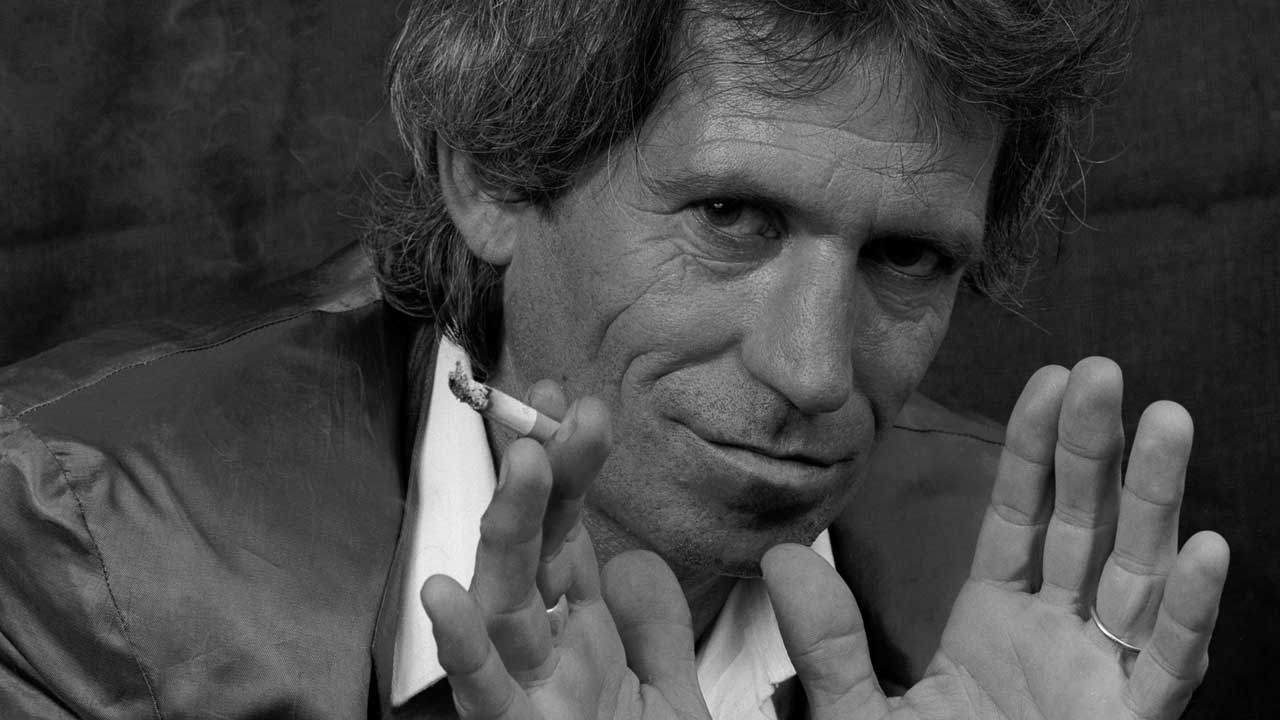The 50 greatest horror movies of all time
From gruesome slashers and iconic monsters to terrifying spirits and beyond, these are the 50 films that have defined horror over the last century
10. Scream (1996)
Scream is a horror film made for horror fans. Wes Craven’s teen slasher knows its DNA inside and out, outlining horror film tropes one minute and subverting them the next. Its campy, self-aware, ultra-quotable dialogue is every inch as infamous as its iconic ‘Ghostface’ killer. The ghoulish white mask has been adopted by seven other killers across the five-film franchise, giving rise to the idea that the murderer is always someone you know… EC
9. Get Out (2017)
Before 2017, Jordan Peele was “that other guy” in the Key & Peele sketch show, with his biggest cinematic foray being the buddy cop box office bomb, Keanu. Then he made Get Out and became horror’s most hyped director. This psychological mindfuck was perfectly placed in Trump’s America, highlighting the casual racism of a seemingly liberal society. Add in a masterful lead turn by Daniel Kaluuya and you get a modern classic. MM
8. Evil Dead II (1987)
Of all four films in the Evil Dead franchise, Evil Dead II nails Sam Raimi’s trademark ‘splatter comedy’ tone perfectly — not too serious, not too silly. Lead actor Bruce Campbell’s physical comedy heightens the inventive practical effects and clever camerawork to give ED2 a fun, original vibe that has lasted the test of time. Plus, the ending has a geyser of blood and a fistfight with a giant demonic tree. Need we say more? EC
7. A Nightmare on Elm Street (1984)
Freddy Kruger is arguably the most instantly recognisable figure in horror since Dracula. Although he would become cartoonish and wisecracking as the years progressed, it’s still easy to see why. The story of a claw-handed, severely burned and disfigured child murderer who kills you in your sleep remains a magnificently unique idea. What else would you expect from a horror master like Wes Craven, who brings the idea of the sins of the parents being handed down to their children to life in a beautifully ghastly way. SH
6. The Texas Chain Saw Massacre (1974)
It’s almost ironic that Tobe Hooper’s The Texas Chain Saw Massacre earned so much controversy for its brutality, given that the film was essentially a scathing critique of America’s meat industry. But therein lies the beauty of what Hooper created; a garish, cheap aesthetic that has been (and still is) copied endlessly right up to this year’s brilliant X, more about tension and abject terror than on-screen gore or spectacular kills. Looking back, the original Texas Chain Saw Massacre seems almost quaint and conservative, much of the run-time spent menacing heroine Sally Hardesty (Marilyn Burns) while most of the film’s most gruesome turns are left to the viewer’s imagination. But then, that’s exactly what the best horrors are all about: forcing us to confront our own twisted fears. RH
5. Halloween (1978)
John Carpenter and Debra Hill’s Halloween didn’t invent the slasher genre, but it may as well have! It’s a masterclass in slow-building suspense, peaked with moments of pure terror, driven by Carpenter’s unbroken tracking shots and spine-tingling score. It somehow captures the ambience of All Hallows’ Eve in all its ghoulish potential. Halloween was so groundbreaking that it became a 13-film franchise and turned Jamie Lee Curtis into horror’s favourite ‘scream queen’ while making a household name of its masked babysitter-killer, Michael ‘The Shape’ Myers. Other holiday-themed horrors would soon follow suit, including Prom Night and — most notably — Friday the 13th. EC
4. The Shining (1980)
Even if it was just Jack Nicholson going batshit in an empty hotel where blood gushes out of lift doors and creepy twins haunt the corridors, The Shining would be a great horror film. In fact, legendary auteur Stanley Kubrick given free rein on inspirational source material from best-loved author Stephen King made for an endlessly fascinating and profound cinematic experience. Everyone who sees The Shining comes away with their own set of theories and interpretations, and every viewing yields unsettling new details - indeed, there’s an entire feature film delineating the film’s codes, clues and themes, 2011’s Room 237. CC
The latest news, features and interviews direct to your inbox, from the global home of alternative music.
3. Alien (1979)
Before Alien, the realm of science fiction horror belonged almost solely to black-and-white B flicks like Attack Of The 50 Foot Woman. However, when Ridley Scott marched into 20th Century Fox’s offices and pitched his next film in three words - “Jaws in space” - it ignited the genre’s first timeless classic. Alien’s premise is devilishly simple: seven intergalactic truckers getting picked off on a claustrophobic spaceship. However, ingenuity’s everywhere, mostly in the form of the extraterrestrial creature plucked from the nightmares of H.R. Giger. It’s no surprise that the hideous image launched a horror institution now four decades old. MM
2. The Thing (1982)
Released in an era where celebratory, family-friendly sci-fi romps like E.T. and Star Wars were being eaten up by cinema goers, The Thing was criminally overlooked upon release, written off by critics as a shameless gore fest lacking emotional depth. How ridiculous that all seems now: John Carpenter’s greatest work is a masterful commentary on Cold War paranoia, toxic masculinity, nihilism and ‘othering’, racked with tension and otherworldly horror. Its all-male cast put in performances that remain mostly understated but utterly compelling, while Ennio Morricone’s simplistic but chilling score and Rob Bottin’s genre-defining SFX rounded out a film that remains peerless. MA
1. The Exorcist (1973)
The tale of a sweet little girl possessed by an ancient Mesopotamian demon, The Exorcist broke box office records around the world and regularly appears on cineastes’ greatest ever movie lists (even without the horror qualifier). It is a uniquely affecting and accomplished production with an ending that emphasises noble self-sacrifice and heavenly love overcoming demonic hate. And yet, insanely, from 1988-1999, it was illegal to own a copy in the UK. When The Exorcist was reissued to cinemas in 2000, the much-parodied gross-out sequences which had so traumatised ‘70s audiences - rotating head, projectile pea soup, filthy blasphemous invective, self-abuse with a crucifix - provoked more snorts of laughter than screams of terror, but the film’s deep sense of emotional disturbance remains starkly undimmed.
Jason Miller’s careworn Father Karras, wracked with grief, guilt and inner turmoil over his mother’s death and his crisis of faith, is one of horror cinema’s most complex heroes; the demon Pazuzu gets a treasure trove of sassy quotable lines (“Your mother sucks cocks in Hell, Karras, you faithless slime!”); and Mike Oldfield’s hippy prog opus Tubular Bells became forever associated with the epic battle between good and evil playing out in a child’s bedroom. CC
Current page: The 50 Greatest Horror Movies Ever: 10-1
Prev Page The 50 Greatest Horror Movies Ever: 20-11
Merlin moved into his role as Executive Editor of Louder in early 2022, following over ten years working at Metal Hammer. While there, he served as Online Editor and Deputy Editor, before being promoted to Editor in 2016. Before joining Metal Hammer, Merlin worked as Associate Editor at Terrorizer Magazine and has previously written for the likes of Classic Rock, Rock Sound, eFestivals and others. Across his career he has interviewed legends including Ozzy Osbourne, Lemmy, Metallica, Iron Maiden (including getting a trip on Ed Force One courtesy of Bruce Dickinson), Guns N' Roses, KISS, Slipknot, System Of A Down and Meat Loaf. He has also presented and produced the Metal Hammer Podcast, presented the Metal Hammer Radio Show and is probably responsible for 90% of all nu metal-related content making it onto the site.
- Matt MillsContributing Editor, Metal Hammer
- Stephen Hill
- Merlin AldersladeExecutive Editor, Louder
- Dave Everley
- Chris Chantler
- Alec ChillingworthWriter
- Emma Cownley
